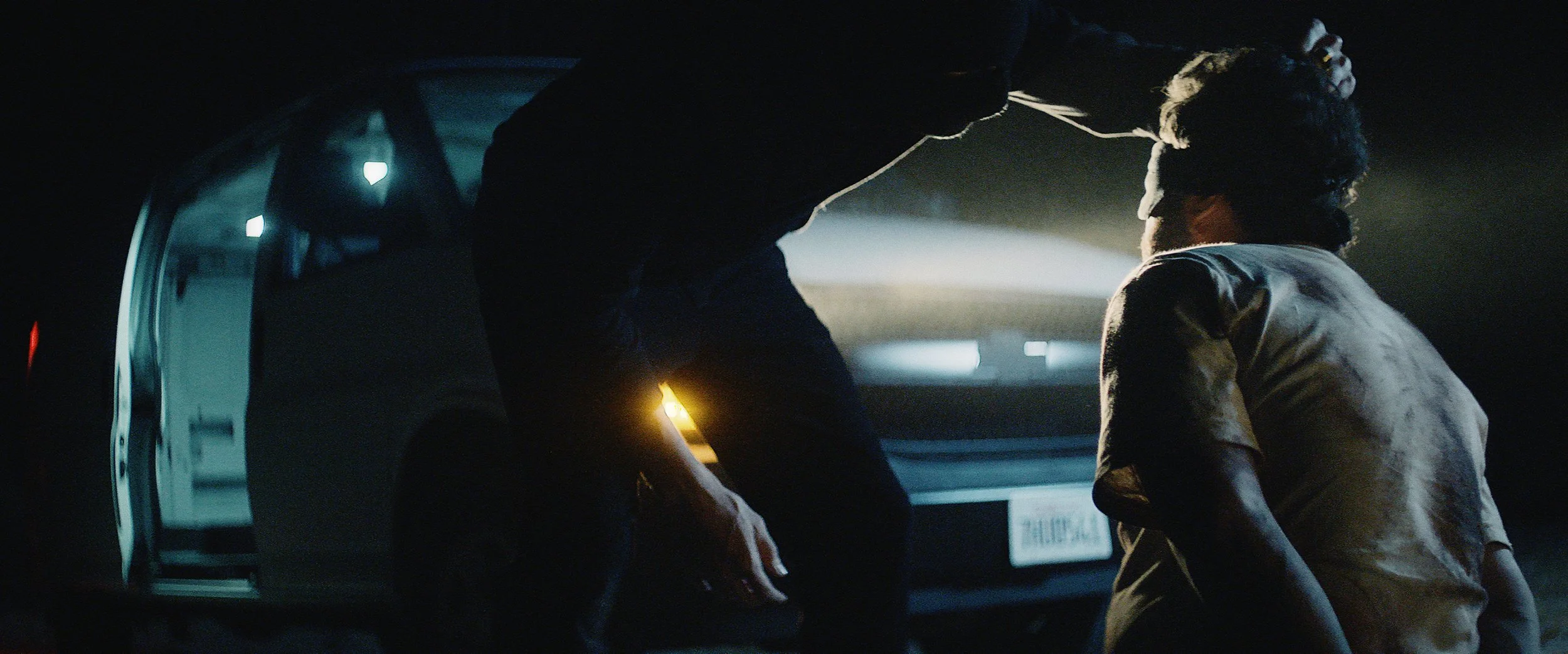Dickweed: Weird But True Crime
Some film titles are mysterious. Some film titles are small microcosms of their contents, others a single word or phrase that acts as an underline to its underlying message. And sometimes, a film’s title kind of says it all. Dickweed is the latter—at least mostly.
Dickweed is a narrative documentary by Jonathan Ignatius Green, the director of 2018’s social media documentary Social Animals. The title is a mashup of sorts, with the “weed” portion coming from its central victim, Michael, an Orange County marijuana shop owner who, out of the blue and for no apparent reason, was taken one night and ultimately left for dead in the California desert. His kidnappers torture him, demand a million dollars, and, when Michael makes it clear he doesn’t have that much, make off with… well, that’s the “dick” part.
The version of Dickweed screened to press is a feature-length cut of the 2-episode finale of SundanceTV’s True Crime Story: Smugshot series. Unshockingly, the film plays out with the kind of dry, tense energy you would expect from a cable true crime series —a somewhat odd match with a certainly horrific but admittedly atypical crime. I’m not one for sensationalism, but it becomes easy to forget both the victims and the nature of the crime when every detail of the case is talked about in stern abstraction as Dickweed mostly does. With, at times, a mind-numbing amount of reverence, the rest of the documentary chronicles the work of the Orange County detectives and prosecutors working to solve the case and catch Michael’s assailants. The focus soon turns to the chase of one suspect, the sly but messy Hossein Nayeri, who is not only difficult to get hard evidence on, but also proves to be excellent at fleeing and hiding from police.
Much like poor Michael, the viewer is dropped straight into the story with very little padding or preparation. The doc utilizes a storytelling technique Green has used previously, where it switches from interview shots and talking heads to actor recreations of some of the more dramatic events. This works much better here than it did in Social Animals, infusing a very clinical true crime retelling with a bit of pathos. Maybe because of the original made-for-TV format, it also feels as if the whole story goes by at a fast clip, which adds to the urgency at some points but makes other tidbits feel glossed over. But on the whole, a lot of Dickweed’s appeal (or lack thereof) depends on the context in which you watch.
Hey, I’m willing to admit this might not be the ideal watch for your next date night. But Dickweed is intriguing and succinct, and that alone makes it a candidate for a pleasant night in. If you’re aching for a true crime story that starts with a bang and fades into a fascinating portrait of a potential sociopath, and you don’t mind a cable-soapy sheen, this will do the trick.

